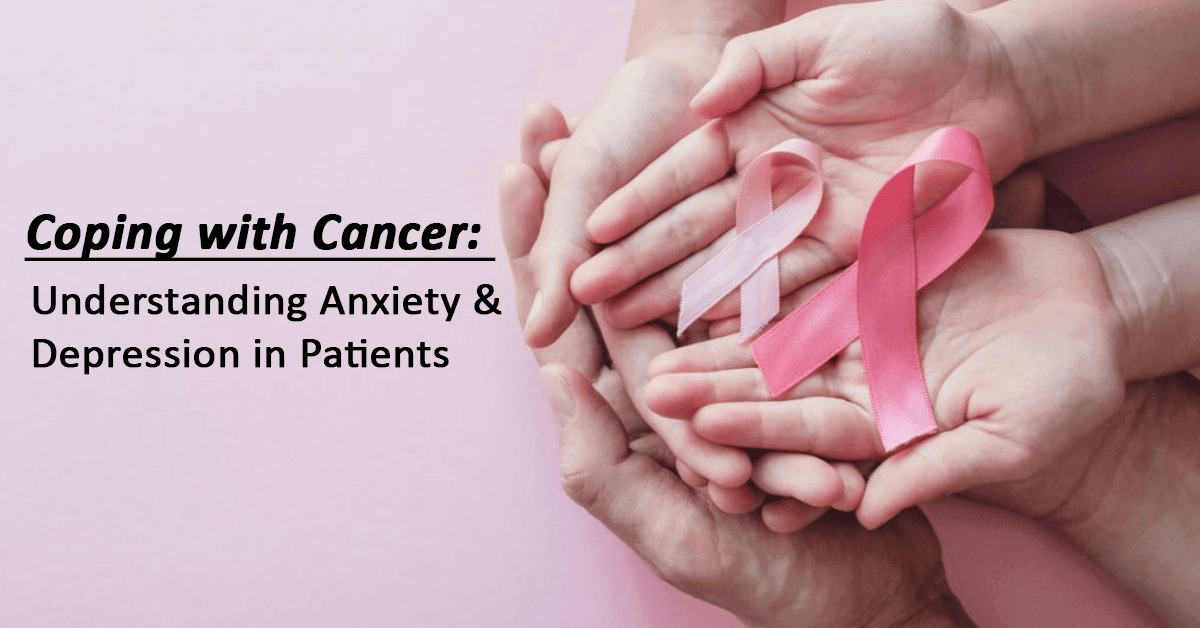
Coping With Cancer: Understanding Anxiety And Depression In Patients
Coping With Cancer Involves Dealing With Not Only Physical
Symptoms, But Also Emotional And Mental Health Issues Including Depression And
Anxiety. These Psychological Responses Can Have A Substantial Impact On A
Patient's Quality Of Life And Can Occur At Any Step Of The Cancer Journey,
Including Diagnosis, Treatment, And After.
Anxiety In Cancer Patients.
Anxiety Is Frequent In Cancer Patients, And Often Stems From Concerns About The Future, Confusion About Treatment Success, Or The Chance Of Recurrence. Specific Anxiety Triggers May Include:
- Fear Of Death Or Progression Of Cancer
- Worries Regarding Treatment Side Effects Such As Discomfort, Exhaustion, Or Hair Loss
- Financial Worries About The Cost Of Treatment
- Effects On Relationships With Family, Friends, And Partners
- Body Image Changes Resulting From Surgery, Chemotherapy, Or Other Therapies
Anxiety Symptoms Include Excessive Worrying, Restlessness,
Difficulty Sleeping, Impatience, And Bodily Symptoms Such As Beating Heart Or
Sweating.
Depression Among Cancer Patients
Depression Can Be A Reaction To The Overwhelming Stress Of
Cancer Diagnosis, Treatment, And The Changes It Brings To One's Life. Some
Patients May Lose Hope, Lose Interest In Previously Enjoyable Activities, Or
Notice Changes In Food, Activity Levels, Or Sleep Patterns. Depression Is More
Than Just Feeling Sad; It Is Characterized By A Persistent Sense Of Despair,
Which May Hinder Recovery Or Treatment Compliance.
Coping Strategies For Cancer-Related Anxiety And
Depression
Anxiety And Depression Management Is A Crucial Aspect Of
Cancer Treatment. Some Techniques For Managing These Mental Health Difficulties
Are:
Psychological
Counselling And Support Groups: Cognitive-behavioural Therapy
(CBT), Individual Counselling, And Support Groups All Provide Emotional Outlets
And Coping Mechanisms For Dealing With Anxiety And Depression.
Medications: Antidepressants
Or Anti-anxiety Drugs May Be Managed To Treat Severe Symptoms.
Mindfulness
And Relaxation Techniques: Meditation, Deep Breathing, Yoga, And Guided
Visualization Can All Help Reduce Stress And Boost Mental Health.
Social
Support: Maintaining Close Connections With Family, Friends, Or Other
Cancer Survivors Can Help To Build A Support Network And Reduce Feelings Of
Loneliness.
Exercise
And Physical Activity: Regular Physical Activity, Suitable For The
Patient's Condition, Can Boost Mood, Reduce Anxiety, And Improve General
Well-being.
Healthy
Nutrition: A Well-balanced Diet Can Help You Stay Energized While Also
Supporting Your Physical And Emotional Health.
Open
Communication With Healthcare Providers: Regular Interactions With Medical
Experts About Emotional Well-being May Help In Adapting Treatment Programs To
Address Both Mental And Physical Issues.
Depression And Anxiety Are Typical And Natural Responses To
Cancer, But They Can Be Treatable. Early Detection And Intervention, Such As
Counselling, Drugs, Or Support Systems, Can Help Patients Manage Mental Health
Issues And Enhance Their Quality Of Life During And After Cancer Treatment.